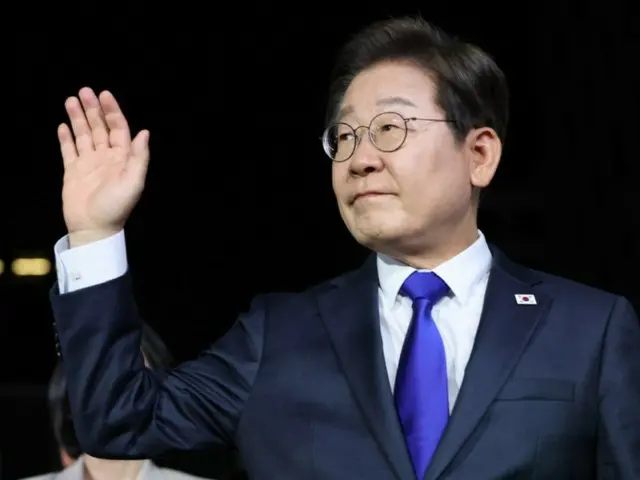However, on the 9th, the Seoul High Court decided to postpone the first hearing of the appeal trial of Lee, who is accused of violating the Public Offices Election Act by lying about the 2022 presidential election, to next week.
The Seoul Central District Court also announced on the 10th that it would postpone a trial for breach of trust related to an urban development project in Seongnam, a suburb of Seoul.
Article 84 of the Constitution stipulates that "The President shall not be liable to prosecution while in office, except for crimes of internal sedition or external treason," and both courts said the postponement was based on this provision.
The date has not been specified, and it is expected that the suspension will be suspended during Lee's term of office. In an editorial dated the 10th, the South Korean newspaper Chosun Ilbo said, "Rather than being a legal decision, it is a case of the confusion of stripping a president who was elected in the middle of his term.
"This is also the reason why the judiciary is criticized for considering politics rather than strict legal judgment," he said.
The government is currently working on amending the Criminal Procedure Act to include a provision that would suspend ongoing criminal trials if Lee is elected.
He was charged with violating the Public Offices Election Act for making false statements in 2021 when he was a candidate for the 2022 presidential election, and was sentenced to one year in prison and two years of probation in the first trial in November last year. However,
Both Lee's side and the prosecution appealed the ruling, and the Seoul High Court overturned the verdict and acquitted him in March of this year. The prosecution then appealed. The Supreme Court decided to hear the case as an en banc panel, with all judges hearing the case.
In May, the Supreme Court ruled that some of Lee's statements constituted "publication of false facts," overturning the ruling of the second instance and sending the case back to the Seoul High Court for further review.
At the time, Lee expressed dissatisfaction with the Supreme Court's decision, telling reporters, "The ruling is completely different from what I thought."
At the time, Lee was planning to run for president, and if the fine of 1 million won (about 100,000 yen) or more was finalized before the election, he might not be able to run.
Therefore, Lee's side filed an application to the court to postpone the trial until after the presidential election.
The Seoul High Court accepted this and announced that the first hearing for Lee's retrial would be postponed to the 18th of this month after the presidential election.
Lee was subsequently elected in the presidential election on the 3rd of this month, becoming the 21st president of South Korea. As mentioned above, Article 84 of the South Korean Constitution states that "The President shall not be liable to prosecution while in office, except for crimes of internal rebellion or external treason."
On the 9th, the Seoul High Court announced the postponement of the first hearing, which was scheduled for the 18th. On the 10th, the Seoul Central District Court
However, they announced that they would postpone the trial of Lee, who is accused of embezzlement and other crimes in connection with corruption in an urban development project. The trial was scheduled to begin on the 24th of this month. Neither court set a new date for each trial,
"Of the five criminal cases in which President Lee was indicted before he took office, the trial for violating the Public Offices Election Act and the trial for corruption in urban development projects will continue until his term in office," Yonhap News Agency reported.
"With the prospect of not proceeding, it is highly likely that the remaining three trials will be subject to similar measures," the report said.
The defendant was not expected to become president, and experts were divided on the constitutional provisions of how to handle a trial of a case that was indicted before the president took office.
In an article published on Stream on the 2nd, it was explained that "Like the Seoul High Court, the Seoul Central District Court seems to have interpreted the president's 'privilege from arrest' to apply to cases that were indicted before he took office."
The opposition People Power Party has criticized the judiciary for "subjudicating to political power," the newspaper reported.
Regarding the Seoul High Court's announcement of the postponement of the trial on the 9th at the general assembly, he said, "Since the Seoul High Court postponed the trial again this time (after postponing the date in May before the presidential election), the court has not exercised sovereignty.
Regarding the ruling Democratic Party of Korea's intention to push for revisions to the Criminal Procedure Law, Kim said, "At this point,
This means that the judiciary is viewed as merely an organ under the orders of political power, rather than an independent institution as defined by the Constitution."
2025/06/11 11:24 KST
Copyrights(C)wowkorea.jp 5

